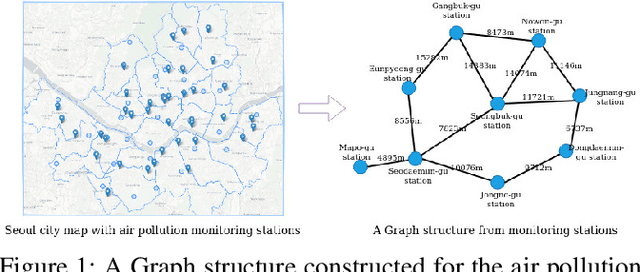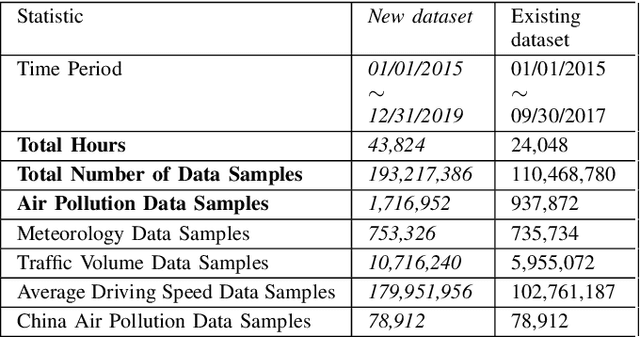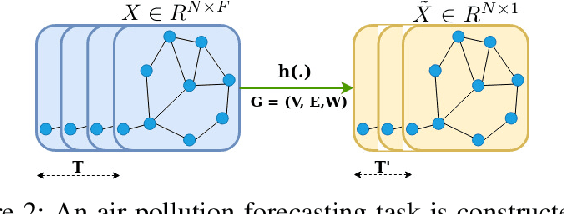Spatiotemporal Graph Convolutional Recurrent Neural Network Model for Citywide Air Pollution Forecasting
Paper and Code
Apr 25, 2023



Citywide Air Pollution Forecasting tries to precisely predict the air quality multiple hours ahead for the entire city. This topic is challenged since air pollution varies in a spatiotemporal manner and depends on many complicated factors. Our previous research has solved the problem by considering the whole city as an image and leveraged a Convolutional Long Short-Term Memory (ConvLSTM) model to learn the spatiotemporal features. However, an image-based representation may not be ideal as air pollution and other impact factors have natural graph structures. In this research, we argue that a Graph Convolutional Network (GCN) can efficiently represent the spatial features of air quality readings in the whole city. Specially, we extend the ConvLSTM model to a Spatiotemporal Graph Convolutional Recurrent Neural Network (Spatiotemporal GCRNN) model by tightly integrating a GCN architecture into an RNN structure for efficient learning spatiotemporal characteristics of air quality values and their influential factors. Our extensive experiments prove the proposed model has a better performance compare to the state-of-the-art ConvLSTM model for air pollution predicting while the number of parameters is much smaller. Moreover, our approach is also superior to a hybrid GCN-based method in a real-world air pollution dataset.
 Add to Chrome
Add to Chrome Add to Firefox
Add to Firefox Add to Edge
Add to Edge